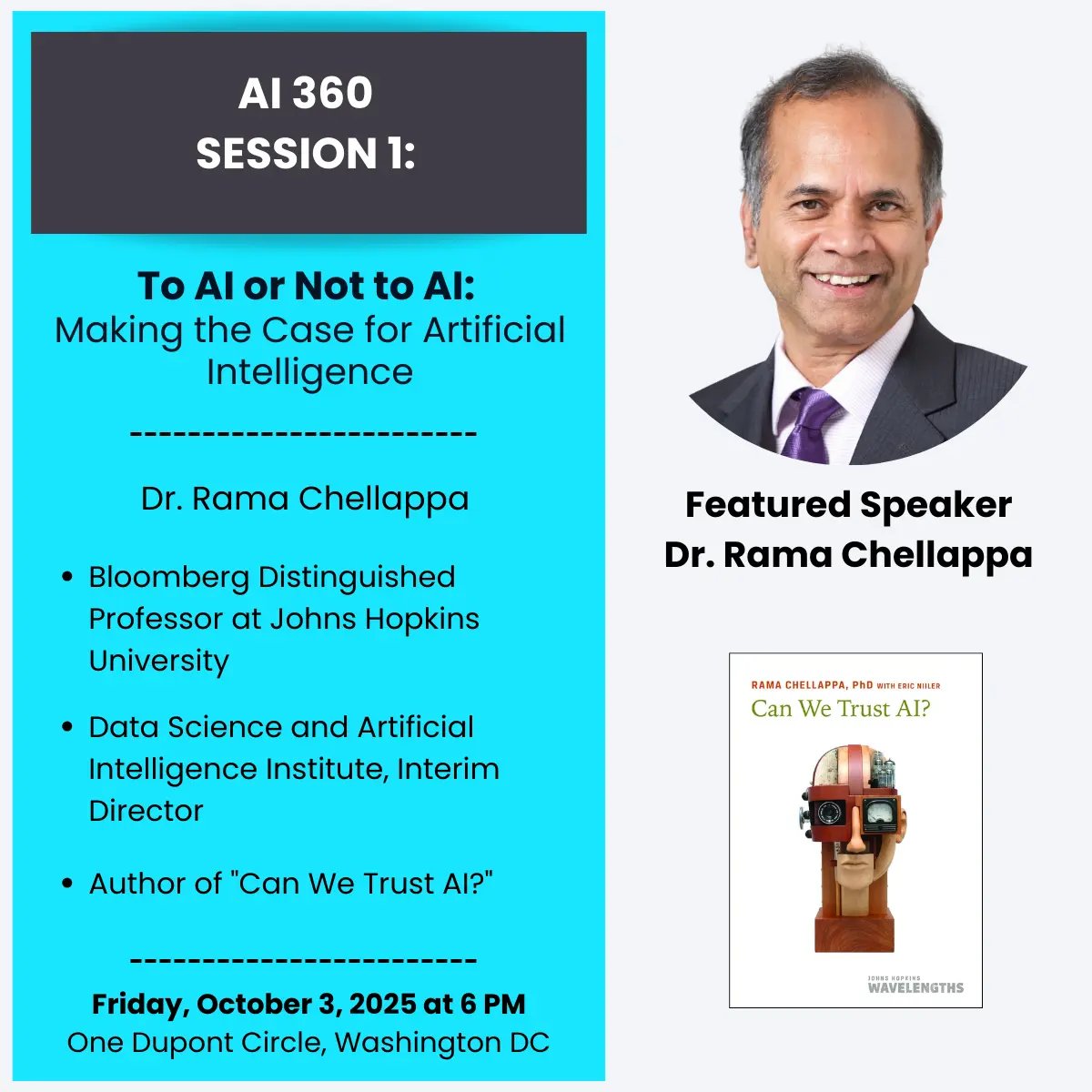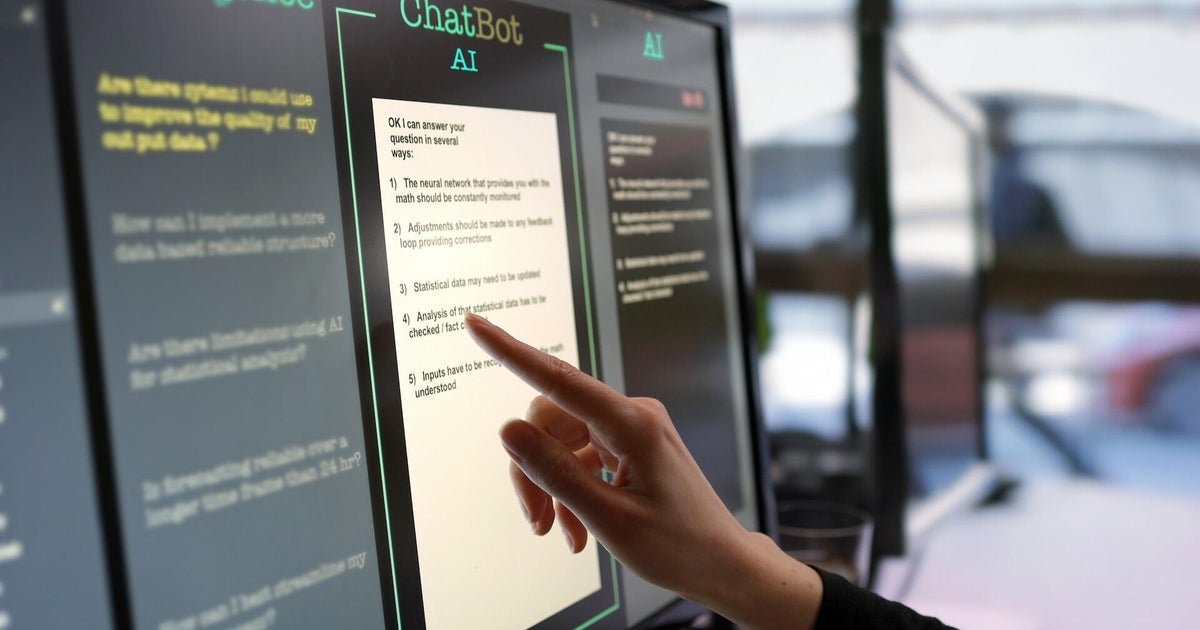AI Insights
Alpha School showcases expedited student learning through artificial intelligence alongside state, federal leaders
On Sept. 9, U.S. Secretary of Education Linda McMahon visited Alpha School in Austin alongside Texas Education Agency Commissioner Mike Morath. Alpha School co-founder MacKenzie Price highlighted how the school is using AI to personalize and improve students’ education.
“It’s the most exciting thing I’ve seen in education in a long time,” McMahon said about Alpha School. “I’m incredibly enthusiastic about this.”
How it works
Price started Alpha School in 2014 to provide students with individually tailored, accelerated instruction and opportunities to build life skills beyond the classroom, Price told Community Impact last year. Students complete their academic learning in two hours each day using an AI platform known as 2 Hour Learning.
The platform allows students to learn at their own pace and advance multiple grade levels in different subjects based on their performance. Price said the Alpha School model enables students to learn twice as fast as they would in a traditional school setting.
After completing their academic coursework, students may participate in workshops focused on developing life skills, such as entrepreneurship, leadership, public speaking and financial literacy. Last school year, Alpha School opened three specialized academies, including a GT School for gifted and talented students in Georgetown, esports school NextGen Academy in Northwest Austin, and Texas Sports Academy in the Lake Travis area.
The academies are led by guides, instead of teachers, who focus on motivating students and providing them with emotional support.
“It’s time for us to all hold ourselves responsible for delivering better to these kids,” Price said. “Using artificial intelligence is what enables us to raise human intelligence, not just for the students, but also for the teachers and the guides and for the families.”
The update
Alpha School opened several new academies across the United States this school year, including a K-3 school in Plano and K-8 school in Fort Worth. The company is planning to open an academy in Houston this winter, according to Alpha School’s website.
Alpha School opend a virtual charter school in Arizona and is looking to open a charter school in Bastrop in 2026, Price told Community Impact in February.
Additionally, Alpha School has begun partnering with school districts to implement its 2 Hour Learning platform at some public schools. The 2 Hour Learning program has provided intervention and enrichment for 1,500 public school students across more than 50 districts, said Gaston Griffin, a representative of Studient and former Alpha School guide.
“We want districts [and] schools to pilot this so they could see and experience this incredible opportunity and solution for themselves,” Griffin said.
What they’re saying
Alpha School student Everest Nevraumont said she advanced from a fourth grade to a ninth grade reading level in one school year through the 2 Hour Learning platform.
“In reading, I’m grade nine, but in math, I’m only grade five, because in reading, I’ve advanced way faster,” Nevraumont said.

Alpha School guide Christie Ray, a former public school principal, said she saw students improve from a prekindergarten to a first grade academic level within five months of implementing 2 Hour Learning at a struggling charter school.
“This opens up the opportunity to bring back what is missing in education, which is the love of school and the love of learning,” Ray said. “This is what we did with our students that were in the failing charter school and made them the stewards of their own learning.”
Noah Lightfoot left his teaching position at Dripping Springs ISD to become a guide at Alpha School. Lightfoot said he has been able to form deeper relationships with his students and motivate them to learn through their personal interests.
Zooming out
McMahon, who became secretary of education in March, said she was excited to observe Alpha School’s AI model and see how it could change how other schools in the nation operate. Teachers are most successful when they have the ability to be innovative in their classrooms, she said.
“Let’s be motivated in our states and with our school systems to inspire them to be curious enough to come and understand what is happening here,” McMahon said, “If I could achieve that goal, we would come a long way in improving our education.”
In the 2025 legislative session, state lawmakers allocated $1 billion to provide families with $10,000 education saving accounts, or ESAs, to pay for private school tuition and other educational expenses.
The tuition for Alpha School campuses ranges from $10,000 to $40,000 a year, Price said. Community Impact asked Price if she was hopeful the new ESA program, which becomes effective next school year, would expand access to Alpha School academies for more Texas families.
“Absolutely,” Price said. “[With] more of these types of opportunities for families to jump into private education [and] by getting that support from ESAs, it’s going to open up more opportunities.”
Alpha School academies regularly assess students to determine what they need to learn and build personalized lesson plans, Price said. The company uses AI to monitor how well a student is learning, she said.
On Aug. 27, Texas senators passed House Bill 8 to eliminate the State of Texas Assessments of Academic Readiness and replace it with three shorter tests, which students would take at the beginning, middle and end of each school year.
“Several of the concepts that you heard today are actually part of the new system that we will be deploying in the 2027-28 school year here in Texas,” Morath said about standardized testing at the Alpha School event Sept. 9.
AI Insights
This Scorching Hot Artificial Intelligence (AI) Stock Just Exploded Higher and Could Be Headed to the $1 Trillion Club Much Earlier Than Expected

This artificial intelligence (AI) specialist leveraged decades of expertise in information technology (IT) and cloud systems and is on a path to earn membership in a very exclusive fraternity.
There’s no denying the trajectory of artificial intelligence (AI) over the past few years. Many of the companies that have pivoted to adopt this game-changing technology have ascended the ranks of the world’s largest companies when measured by market cap. When the stock market closed on Tuesday, there were 11 members of the vaunted $1 trillion club, the vast majority of which have significant ties to AI.
After the market close, industry stalwart Oracle (ORCL 1.37%) reported its recent quarterly results, and despite missing Wall Street’s expectations, the stock surged higher and never looked back. Why? In a stunning turn of events, the company signed numerous multibillion-dollar contracts that kicked its future growth potential into overdrive.
Given the magnitude of these deals, it seems the writing is on the wall for Oracle to join this elite fraternity. The company’s growth is at a tipping point, and management’s commentary suggests the company has a long AI-centric runway for growth ahead.
Image source: Getty Images.
A trusted partner
Oracle holds a coveted place in the technology community, as roughly 98% of Global Fortune 500 companies make up its customer rolls. The industry stalwart provides its customers with a strategic combination of cloud, database, and enterprise software. Naturally, when the shift to AI began in earnest, this captive audience began to turn to Oracle for its expanding collection of cloud and AI solutions.
The company’s growth has been uneven, but the future looks bright. During Oracle’s fiscal 2026 first quarter (ended Aug. 31), total revenue grew 11% year over year to $14.9 billion, while its adjusted earnings per share (EPS) of $1.47 grew by 6%. Both numbers accelerated compared to Q4, but missed Wall Street’s consensus estimates, which called for revenue of $15 billion and adjusted EPS of $1.48.
However, that wasn’t the headline. Last quarter, CEO Safra Catz noted that the company had reached a “tipping point,” noting that revenue growth was accelerating, “and it’s only going up from here.”
That turned out to be an understatement. Oracle reported explosive growth in its remaining performance obligation (RPO) — or contractual obligations not yet included in revenue — which skyrocketed 359% year over year to $455 billion, up from $138 billion in Q4.
Catz explained, “We signed four multibillion-dollar contracts with three different customers in Q1,” calling the results “astonishing.” He went on to say that demand for Oracle Cloud “continues to build.” The company expects to sign “several additional multi-billion-dollar customers and RPO is likely to exceed half a trillion dollars.”
Looking to the future, Oracle is forecasting Oracle Cloud Infrastructure revenue to grow 77% to $18 billion this year — but that’s just the beginning:
- Fiscal 2027 cloud revenue of $32 billion, up 78%.
- Fiscal 2028 cloud revenue of $73 billion, up 128%.
- Fiscal 2029 cloud revenue of $144 billion, up 97%.
Mind you, this is just Oracle Cloud Infrastructure revenue, and Catz noted that “most of the revenue in this five-year forecast is already booked in our reported RPO.” That means that any future contracts will probably increase those growth targets.
The path to $1 trillion just got much shorter
Oracle is leveraging its position as a trusted partner to help customers choose suitable AI and cloud solutions and profit from the growing adoption of generative AI.
Before today’s results, Wall Street was expecting Oracle to generate revenue of $66.75 billion in its fiscal 2026 (which began June 1), giving it a forward price-to-sales (P/S) ratio of about 10. Assuming its P/S remained constant, Oracle needed to generate revenue of approximately $98 billion annually to support a $1 trillion market cap. Given those figures, Oracle could have achieved a $1 trillion market cap before 2028.
Wall Street hasn’t yet had time to update its models, but given the magnitude of the company’s results, previous forecasts are out the window. Barring unforeseen circumstances, I predict Oracle will join the $1 trillion club within the next 12 months.
Estimates regarding the market potential of generative AI continue to ratchet higher. Big Four accounting firm Price Waterhouse Coopers (PwC) calculates the opportunity could be worth as much as $15.7 trillion annually by 2030, which illustrates the magnitude of the opportunity.
Given the recent contract wins, Oracle has proven that it is leveraging its experience to profit from this windfall. The writing is on the wall, and Oracle is poised to join the fraternity of trillionaires in short order.
Danny Vena has no position in any of the stocks mentioned. The Motley Fool has positions in and recommends Oracle. The Motley Fool has a disclosure policy.
AI Insights
AI 360 Series- Navigating the Dimensions of Artificial Intelligence

Navigating the Dimensions of Artificial Intelligence
A 6-part series offering a holistic analysis of AI and its broad implications
AI 360 brings together alumni from MIT, Columbia, Johns Hopkins, Harvard, and other premier institutions to examine artificial intelligence across six critical dimensions: strategic foundations, business dynamics, ethical frameworks, governance structures, technical infrastructure, and workforce transformation. This comprehensive series equips senior professionals with the strategic insights needed to navigate AI’s impact on their organizations and industries through expert presentations and interactive dialogue with leading researchers, practitioners, and policymakers.
Session 1: Making the Case for AI
Featured Speaker: Dr. Rama Chellappa – Interim Director, Data Science and Artificial Intelligence Institute, Bloomberg Distinguished Professor at Johns Hopkins University, and Author of “Can We Trust AI?”
Professor Chellappa brings 45+ years of AI expertise, from witnessing the 1978 AI winter through today’s data-driven renaissance. As a pioneer in computer vision, pattern recognition, and machine learning, he’ll provide the historical context and strategic insights needed to understand AI’s transformative potential.
What You’ll Gain
- Historical Perspective: AI’s evolution from early rule-based systems to today’s breakthrough applications
- Industry Applications: Real-world case studies across healthcare, finance, transportation, and beyond
- Future Trends: Emerging technologies and their implications for your organization
- ROI Insights: Measurable returns and strategic value propositions for AI investment
- Practical Wisdom: When and how to implement AI solutions responsibly
Format: Presentation + Fireside Chat – Interactive dialogue designed for busy professionals who need actionable insights, not just theory.
Upcoming sessions in the Series:
Session 2: The Business of AI – Venture capital investments, big tech strategies, and startup innovations driving AI commercialization. Market dynamics reshaping the competitive landscape. Achieving a ROI on AI investments.
- Date: Monday, November 17, 2025| 6:30 PM
- Speaker: Karen Hao, NYT Bestselling Author of EMPIRE OF AI | TIME100 AI | Award-winning AI Reporter | Order my book: empireofai.com
Session 3: AI Tech Survey – Computing requirements, cloud deployment strategies, and data center architecture. AI chip technologies, edge computing solutions, and scalable security infrastructure.
- Date: January, 2026| Details to be announced
Session 4: Governing AI – A survey of federal and state regulatory approaches, international governance frameworks, and proposed legislation. Balancing innovation with oversight through public-private collaboration.
Date: March, 2026| Details to be announced
Session 5: Trust & Safety in AI – Addressing algorithmic bias, privacy concerns, and safety standards. Building ethical frameworks and accountability mechanisms for responsible AI development.
- Date: May, 2026| Details to be announced
Session 6: AI & Workforce Evolution – Job transformation across sectors, reskilling strategies, and educational adaptation. Policy responses to workforce displacement and emerging career opportunities.
- Date: June, 2026| Details to be announced
AI Insights
Why AI is making it harder for young people to to land their first job
-

 Business2 weeks ago
Business2 weeks agoThe Guardian view on Trump and the Fed: independence is no substitute for accountability | Editorial
-
Tools & Platforms4 weeks ago
Building Trust in Military AI Starts with Opening the Black Box – War on the Rocks
-

 Ethics & Policy1 month ago
Ethics & Policy1 month agoSDAIA Supports Saudi Arabia’s Leadership in Shaping Global AI Ethics, Policy, and Research – وكالة الأنباء السعودية
-

 Events & Conferences4 months ago
Events & Conferences4 months agoJourney to 1000 models: Scaling Instagram’s recommendation system
-

 Jobs & Careers2 months ago
Jobs & Careers2 months agoMumbai-based Perplexity Alternative Has 60k+ Users Without Funding
-

 Education2 months ago
Education2 months agoVEX Robotics launches AI-powered classroom robotics system
-

 Podcasts & Talks2 months ago
Podcasts & Talks2 months agoHappy 4th of July! 🎆 Made with Veo 3 in Gemini
-

 Education2 months ago
Education2 months agoMacron says UK and France have duty to tackle illegal migration ‘with humanity, solidarity and firmness’ – UK politics live | Politics
-

 Funding & Business2 months ago
Funding & Business2 months agoKayak and Expedia race to build AI travel agents that turn social posts into itineraries
-

 Podcasts & Talks2 months ago
Podcasts & Talks2 months agoOpenAI 🤝 @teamganassi






















